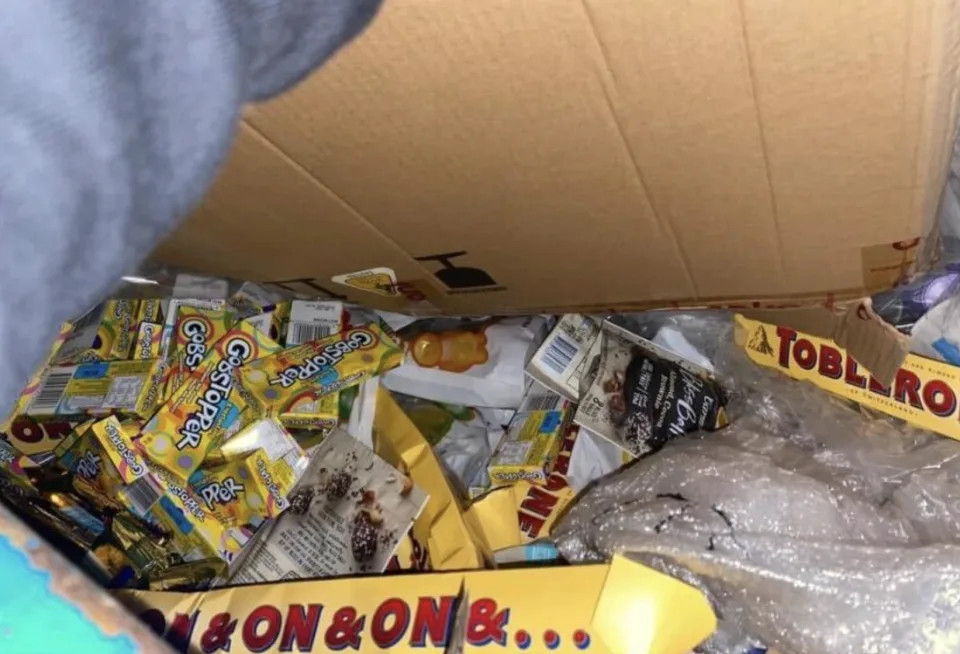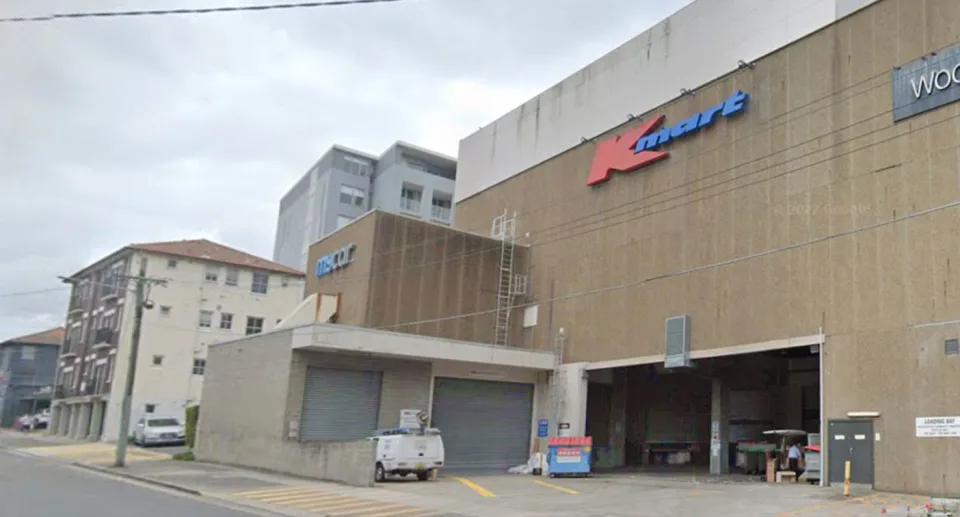Kmart faces backlash over “disgusting” bin discovery — “What a waste!”
By
- Replies 19
Food waste is a huge problem in Australia. According to the National Food Waste Strategy Feasibility Study, food waste costs the Australian economy an estimate of $36.6 billion annually. That's a huge amount of money, and it's a problem that's only getting worse.
A big part of the problem is that households are responsible for the majority of food waste in the country. Aussie households generate around 2.46 million tonnes of food waste every year. It's especially alarming when you consider that around 70% of this food is perfectly edible.
In other words, we're throwing away millions of tonnes of perfectly good food every year.
Keeping this in mind, it is not surprising that Sydneysiders were outraged after discovering a sizable hoard of perfectly-edible chocolates and lollies — which included Toblerone bars and boxes of Gobstoppers — thrown into a dumpster behind a Kmart store.
A concerned Sydney resident shared a photo of the discarded stash on Facebook, sharing that the goods were found in an industrial bin behind the Ashfield Kmart in Sydney's Inner West and stating that most of the items have expiry dates in May and June.

Credit: Facebook
The claim on expiry dates has been debunked, however, as one person noted that chocolate and confectionery have "best before" dates rather than expiration dates.
The post has prompted Facebook users to take to the comments section to air their frustration and anger over the practice of discarding edible food, with many of them describing the act as "disgusting."
One user wrote: "What a waste."
"So much waste, they'd rather destroy food than donate it, or give it away if they can't profit from it," another added.
Another user suggested donating the food to a nearby foundation that assists homeless people, saying that there are food pantries and organisations that redirect these food donations to those who are in need.
Kmart has yet to respond to requests for comments.

The discarded goods were found in an industrial bin behind the Ashfield Kmart in Sydney's Inner West. Credit: Google Maps.
What does "best before" signify on food packaging?
For starters, expiration dates and "best before" dates are two different things — an expiration date is the last date that the food can be safely consumed. while a "best before" date is the date that the food will start to lose its freshness, taste, and quality.
The NSW Food Authority states that retailers may continue to sell food after the "best before" date has gone as long as the item has not "deteriorated or perished."
"Foods marked 'best before' are safe to be consumed provided the food is otherwise fit for human consumption," the group said.
"These foods can be expected to retain their colour, taste, texture and flavour provided they have been stored correctly."
It should be noted that 'best before' labels are typically found on cereals, biscuits, sauces, flour, and frozen meals in addition to chocolates.
According to Food Standards Australia, date markings serve as a guide to indicate how long food can be stored before it starts to decay or becomes unfit for consumption.
Additionally, nonprofit organisation DoSomething said that food that has passed its "best before" date can be donated to charity.
Personally, we find this issue appalling because we believe that donating to charity can help those in need and can support various causes that these organisations are advocating for. Aside from this, donating can also give you a lot of benefits including improving your mental and physical health, building your self-confidence, and making you happier.
How about you? What are your thoughts on this? Do you think retailers should give away food that they deem unsellable to food pantries and foundations? Let us know your insights in the comments below.
A big part of the problem is that households are responsible for the majority of food waste in the country. Aussie households generate around 2.46 million tonnes of food waste every year. It's especially alarming when you consider that around 70% of this food is perfectly edible.
In other words, we're throwing away millions of tonnes of perfectly good food every year.
Keeping this in mind, it is not surprising that Sydneysiders were outraged after discovering a sizable hoard of perfectly-edible chocolates and lollies — which included Toblerone bars and boxes of Gobstoppers — thrown into a dumpster behind a Kmart store.
A concerned Sydney resident shared a photo of the discarded stash on Facebook, sharing that the goods were found in an industrial bin behind the Ashfield Kmart in Sydney's Inner West and stating that most of the items have expiry dates in May and June.
Credit: Facebook
The claim on expiry dates has been debunked, however, as one person noted that chocolate and confectionery have "best before" dates rather than expiration dates.
The post has prompted Facebook users to take to the comments section to air their frustration and anger over the practice of discarding edible food, with many of them describing the act as "disgusting."
One user wrote: "What a waste."
"So much waste, they'd rather destroy food than donate it, or give it away if they can't profit from it," another added.
Another user suggested donating the food to a nearby foundation that assists homeless people, saying that there are food pantries and organisations that redirect these food donations to those who are in need.
Kmart has yet to respond to requests for comments.
The discarded goods were found in an industrial bin behind the Ashfield Kmart in Sydney's Inner West. Credit: Google Maps.
What does "best before" signify on food packaging?
For starters, expiration dates and "best before" dates are two different things — an expiration date is the last date that the food can be safely consumed. while a "best before" date is the date that the food will start to lose its freshness, taste, and quality.
The NSW Food Authority states that retailers may continue to sell food after the "best before" date has gone as long as the item has not "deteriorated or perished."
"Foods marked 'best before' are safe to be consumed provided the food is otherwise fit for human consumption," the group said.
"These foods can be expected to retain their colour, taste, texture and flavour provided they have been stored correctly."
It should be noted that 'best before' labels are typically found on cereals, biscuits, sauces, flour, and frozen meals in addition to chocolates.
According to Food Standards Australia, date markings serve as a guide to indicate how long food can be stored before it starts to decay or becomes unfit for consumption.
Additionally, nonprofit organisation DoSomething said that food that has passed its "best before" date can be donated to charity.
Personally, we find this issue appalling because we believe that donating to charity can help those in need and can support various causes that these organisations are advocating for. Aside from this, donating can also give you a lot of benefits including improving your mental and physical health, building your self-confidence, and making you happier.
How about you? What are your thoughts on this? Do you think retailers should give away food that they deem unsellable to food pantries and foundations? Let us know your insights in the comments below.







